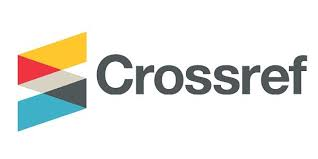PENGEMBANGAN MODUL DIGITAL MATERI KEBUMIAN UNTUK MENINGKATKAN LITERASI IKLIM DI INDONESIA
DOI:
https://doi.org/10.37478/optika.v6i2.2268Abstract
Penelitian ini bertujuan untuk mengembangkan modul digital pada materi Kebumian untuk menciptakan literasi masyarakat tentang perubahan iklim. Pengembangan dilakukan melalui beberapa tahapan yaitu analisis materi, perancangan media, pembuatan media, validasi ahli, implementasi, dan evaluasi. Media dikembangkan dengan menggunakan aplikasi Adobe Flash dan divalidasi oleh 5 orang ahli dan diimplementasikan kepada 73 calon guru fisika yang terdiri dari (29 kelas eksperimen dan 34 kelas kontrol) di salah satu universitas di Bandung - Indonesia. Data dianalisis secara deskriptif, komparatif, serta perhitungan N-gain. Berdasarkan hasil analisis data, hasil validitas ahli menyatakan bahwa modul digital materi Kebumian materi perubahan iklim layak digunakan walaupun ada sedikit revisi pada bagian materi. Selanjutnya berdasarkan uji independent sample terdapat perbedaan hasil belajar tentang perubahan iklim pada kelas eksperimen dan kelas kontrol. Dan berdasarkan uji sampel berpasangan bahwa terdapat pengaruh penggunaan modul digital materi Kebumian materi perubahan iklim terhadap hasil belajar calon guru fisika pada kelas eksperimen. Selain itu, berdasarkan perhitungan N-Gain dalam penelitian ini lebih efektif dibandingkan yang tidak menggunakan modul digital serta memberikan respon yang sangat positif terhadap pemanfaatan modul digital materi Kebumian. Oleh karena itu, modul digital perkuliahan sangat cocok digunakan sebagai alat untuk mempelajari perubahan iklim.
Downloads
Keywords:
Literasi Iklim, Modul Digital, Materi KebumianReferences
Adnan, M. (2019). The Use of the Interactive Whiteboard in Mathematics Lessons towards the Achievement and Motivation of Year Five Students in the Topic of Space. 28(8), 777–781.
Balica, S. F., Popescu, I., Beevers, L., & Wright, N. G. (2013). Parametric and physically based modelling techniques for flood risk and vulnerability assessment: A comparison. Environmental modelling & software, 41, 84-92.
Belland, B. R., Gu, J., Armbrust, S., & Cook, B. (2015). Scaffolding argumentation about water quality: a mixed-method study in a rural middle school. Educational Technology Research and Development, 63(3), 325–353. https://doi.org/10.1007/s11423-015-9373-x
Carvalho, N., Chaim, O., Cazarini, E., & Gerolamo, M. (2018). Manufacturing in the fourth industrial revolution: A positive prospect in Sustainable Manufacturing. Procedia Manufacturing, 21, 671–678. https://doi.org/10.1016/j.promfg.2018.02.170
Colston, N. M., & Thomas, J. (2019). Climate change skeptics teach climate literacy? A critical discourse analysis of children’s books. Journal of Science Communication, 18(4), 1–22. https://doi.org/10.22323/2.18040202
Duong, T. M., Ranasinghe, R., Luijendijk, A., Ngo, H., & Roelvink, D. (2012). Climate Change Impacts on the Stability of Small Tidal Inlets: A numerical modelling study using the Realistic Analogue approach. The International Journal of Ocean and Climate Systems, 3(October 2015), 163–172. https://doi.org/10.1260/1759-3131.3.3.163
Fadilah, H., Hamdani, D., & Purwanto, A. (2022). Pengembangan modul suhu dan kalor dengan pendekatan saintifik untuk melatihkan literasi sains peserta didik di sma. 4(3), 185–192.
Firdaus, T., Erwin, E., & Rosmiati, R. (2019). Eksperimen Mandiri Siswa dalam Penentuan Percepatan Gravitasi Bumi pada Materi Gerak Jatuh Bebas. Titian Ilmu: Jurnal Ilmiah Multi Sciences, 11(1), 31–36. https://doi.org/10.30599/jti.v11i1.385
Gohain, J. (2020). Technology and Empowerment of Women: Role of Digital Media in Democracy. 29(02), 2830–2836.
Gunes E., & Bahçivan, E. (2018). A mixed research-based model for pre-service science teachers’ digital literacy: Responses to which beliefs and how and why they interact questions. Computers and Education, 118 (2), 96–106. https://doi.org/10.1016/j.compedu.2017.11.012
Hermawan, E. (2018). Impact of teleconnection between Indian Ocean Dipole (IOD) and El Nino at normal (neutral) phase condition on the Java Monsoon rainfall variability. Journal of Physics: Conference Series, 1130(1). https://doi.org/10.1088/1742-6596/1130/1/012038
Hidayatno, A., Destyanto, A. R., & Hulu, C. A. (2019). Industry 4.0 technology implementation impact to industrial sustainable energy in Indonesia: A model conceptualization. Energy Procedia, 156, 227–233. https://doi.org/10.1016/j.egypro.2018.11.133
IPCC. (2014). Climate Change 2014: Mitigation of Climate Change. Summary for Policymakers and Technical Summary. In Climate Change 2014: Mitigation of Climate Change. Part of the Working Group III Contribution to the Fifth Assessment Report of the Intergovernmental Panel on Climate Change. https://doi.org/10.1017/CBO9781107415416.005
Kagawa, F., & Selby, D. (2012). Ready for the Storm: Education for Disaster Risk Reduction and Climate Change Adaptation and Mitigation1. Journal of Education for Sustainable Development, 6(2), 207–217. https://doi.org/10.1177/0973408212475200
Labonnote, N., Lappegard Hauge, Å., & Sivertsen, E. (2019). A climate services perspective on Norwegian stormwater-related databases. Climate Services, 13(February 2018), 33–41. https://doi.org/10.1016/j.cliser.2019.01.006
Lawless, K. A., Brown, S. W., Rhoads, C., Lynn, L., Newton, S. D., Brodowiksa, K., Oren, J., Riel, J., Song, S., & Wang, M. (2018). Promoting students’ science literacy skills through a simulation of international negotiations: The GlobalEd 2 Project. Computers in Human Behavior, 78, 389–396. https://doi.org/10.1016/j.chb.2017.08.027
Liao, Y., Loures, E. R., Deschamps, F., Brezinski, G., & Venâncio, A. (2018). The impact of the fourth industrial revolution: A cross-country/region comparison. Producao, 28. https://doi.org/10.1590/0103-6513.20180061
Macgilchrist, F. (2019). Cruel optimism in edtech: when the digital data practices of educational technology providers inadvertently hinder educational equity. Learning, Media and Technology, 44(1), 77–86. https://doi.org/10.1080/17439884.2018.1556217
Manda, M. I., & Dhaou, S. Ben. (2019). Responding to the challenges and opportunities in the 4th industrial revolution in developing countries. ACM International Conference Proceeding Series, Part F1481, 244–253. https://doi.org/10.1145/3326365.3326398
Molnar, P., & Cronin, T. W. (2015). Growth of the Maritime Continent and its possible contribution to recurring Ice Ages. Paleoceanography, 30(3), 196–225. https://doi.org/10.1002/2014PA002752
Mubarok, A. Z., Pendidikan, M., Fakultas, F., & Pendidikan, I. (n.d.). Pengembangan Modul Elektronik Fisika untuk Meningkatkan Kemampuan Berpikir Kreatif Peserta Didik Pada Materi Hukum Newton.
Nurutami, M. N., & Hidayat, R. (2016). Influences of IOD and ENSO to Indonesian Rainfall Variability: Role of Atmosphere-ocean Interaction in the Indo-pacific Sector. Procedia Environmental Sciences, 33, 196–203. https://doi.org/10.1016/j.proenv.2016.03.070
Rohaeti, E. E., Bernard, M., & Primandhika, R. B. (2019). Developing interactive learning media for school level mathematics through open-ended approach aided by visual basic application for excel. Journal on Mathematics Education, 10(1), 59–68.
https://doi.org/10.22342/jme.10.1.5391.59-68
Rojas-Downing, M. M., Nejadhashemi, A. P., Harrigan, T., & Woznicki, S. A. (2017). Climate change and livestock: Impacts, adaptation, and mitigation. Climate Risk Management, 16, 145–163. https://doi.org/10.1016/j.crm.2017.02.001
Rosmiati, Jatmiko, B., & Madlazim. (2013). Pengembangan Perangkat Pembelajaran Blended Learning Model Cooperative Untuk. 3(1), 294–298.
Rosmiati, R., & Satriawan, M. (2019). The ocean climate phenomenon: The challenges of earth physics lectures in Indonesia. Journal of Physics: Conference Series, 1157(3). https://doi.org/10.1088/1742-6596/1157/3/032038
Rosmiati, R, Rahmawati, E., & Suswati, L. (2017). Development of learning module based on physical simulation in improving understanding of physics concept of students. Seminar Nasional Fisika (SNF) 2017, November, 15–21. https://fisika.fmipa.unesa.ac.id/proceedings/index.php/snf/article/view/16/6
Rosmiati, Rosmiati, Liliasari, L., Tjasyono, B., Ramalis, T. R., & Satriawan, M. (2020). Adaptasi dan Mitigasi Bencana Alam untuk Mahasiswa Calon Guru Fisika Melalui Pengembangan LKM. Jurnal Penelitian Pembelajaran Fisika, 11(1), 1. https://doi.org/10.26877/jp2f.v11i1.5272
Satriawan, M., & Rosmiati, R. (2017). Pengembangan Bahan Ajar Fisika Berbasis Kontekstual Dengan Mengintegrasikan Kearifan Lokal Untuk Meningkatkan Pemahaman Konsep Fisika Pada Mahasiswa. JPPS (Jurnal Penelitian Pendidikan Sains), 6(1), 1212. https://doi.org/10.26740/jpps.v6n1.p1212-1217
Science, E. I., & Kong, H. (2013). ENSO Contribution to Aerosol Variations over the Maritime Continent and the Western North Pacific during 2000-10. September. https://doi.org/10.1175/JCLI-D-12-00253.1
Sutopo, A. (2019). Developing Student ’ s Translation Skill Using Interactive Method. 28(8), 725–733.
Tjasyono, B., & Ramalis, T. R. (n.d.). Measuring level of reflective thinking of physics pre-service teachers using effective essay argumentation. 1.
Veron, D., Marbach-Ad, G., Wolfson, J., & Ozbay, G. (2016). Assessing Climate Literacy Content in Higher Education Science Courses: Distribution, Challenges, and Needs. Journal of College Science Teaching, 045(06). https://doi.org/10.2505/4/jcst16_045_06_43
Xu, Z., Tang, Y., Connor, T., Li, D., Li, Y., & Liu, J. (2017). Climate variability and trends at a national scale. Scientific Reports, 7(1), 1–10. https://doi.org/10.1038/s41598-017-03297-5
Yamanaka, M. D., Ogino, S. Y., Wu, P. M., Jun-Ichi, H., Mori, S., Matsumoto, J., & Syamsudin, F. (2018). Maritime continent coastlines controlling Earth’s climate. Progress in Earth and Planetary Science, 5(1). https://doi.org/10.1186/s40645-018-0174-9
Downloads
Published
How to Cite
Issue
Section
License
Jurnal Lesensi











